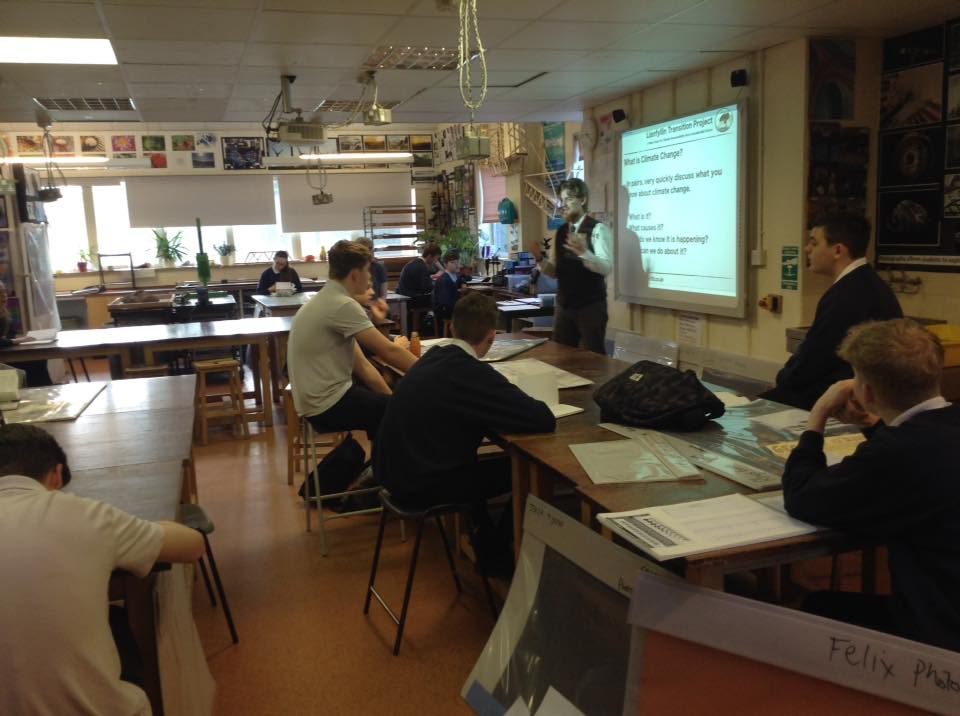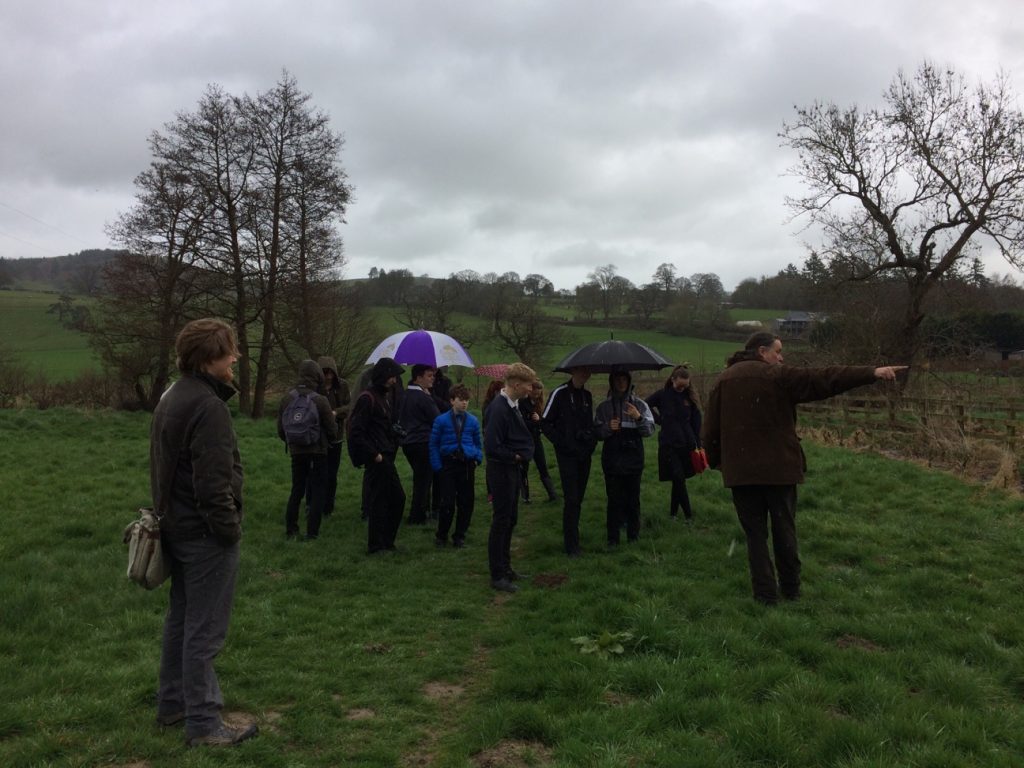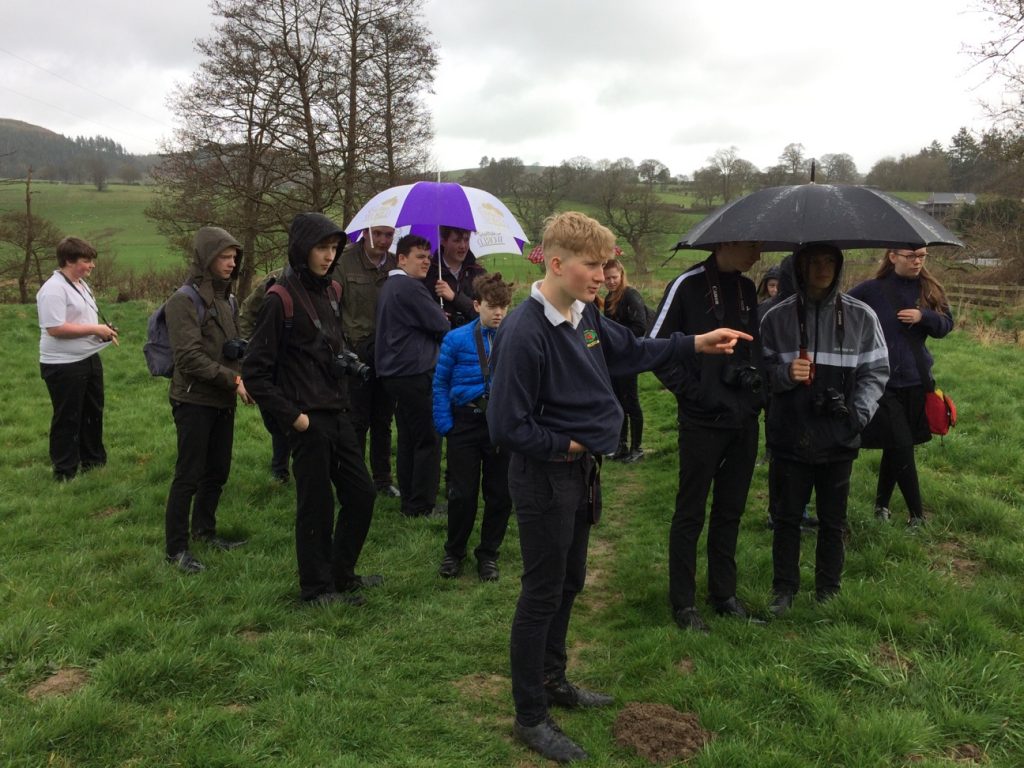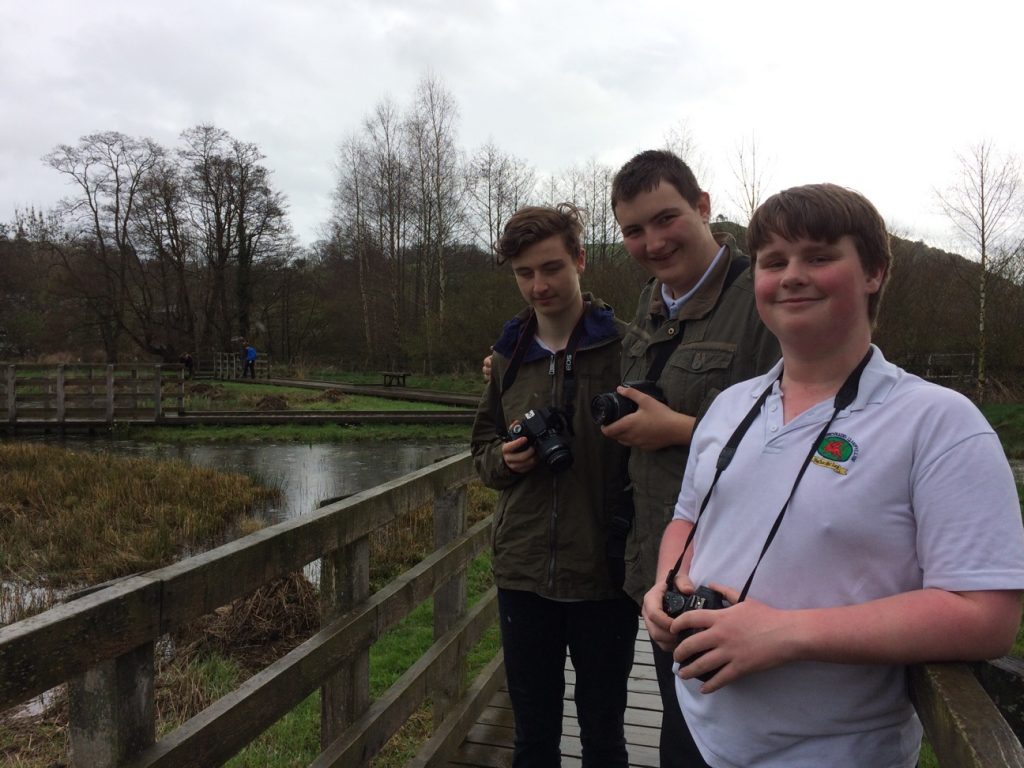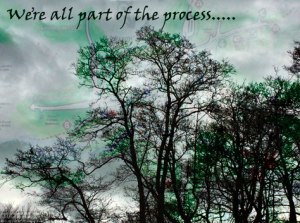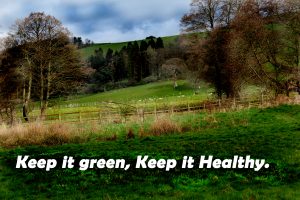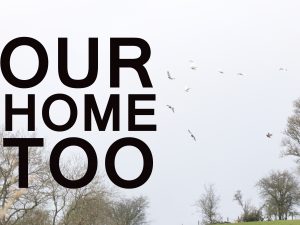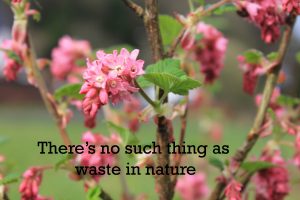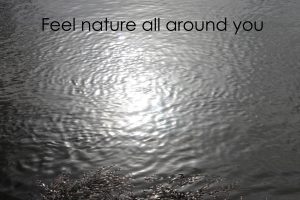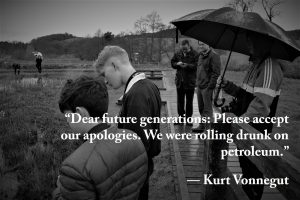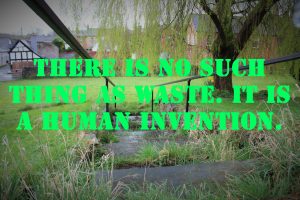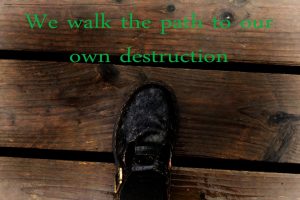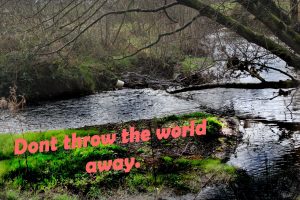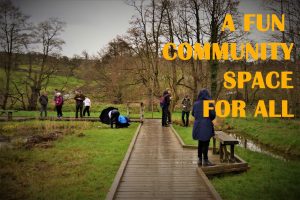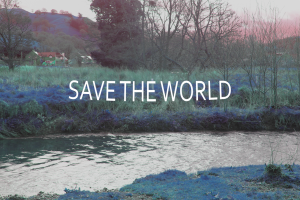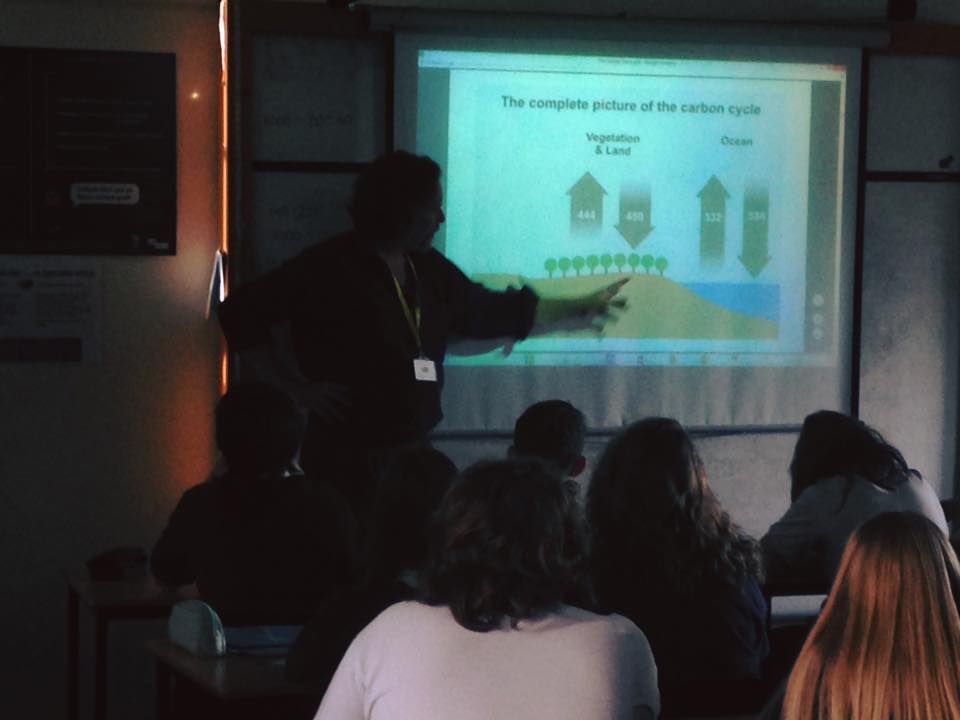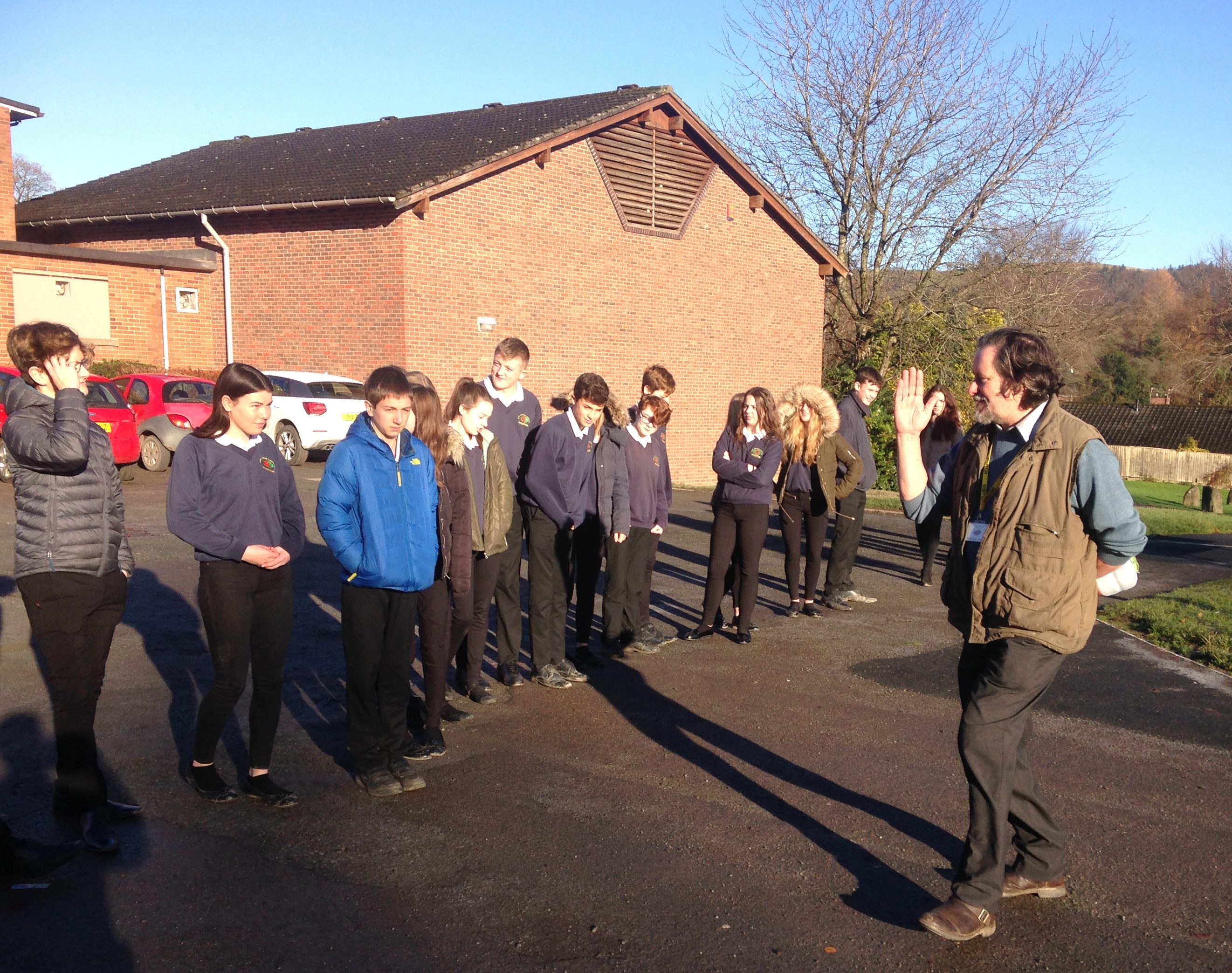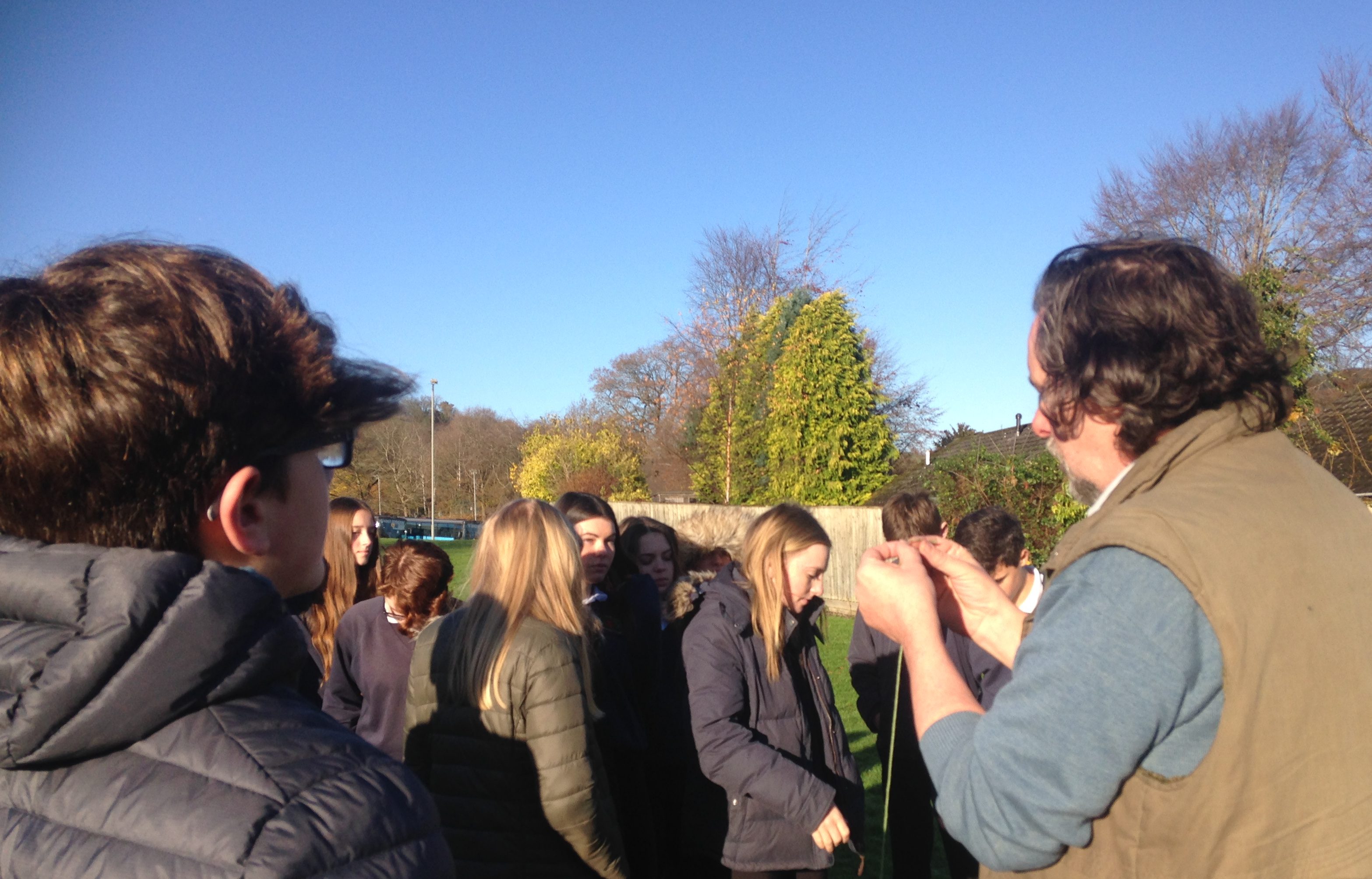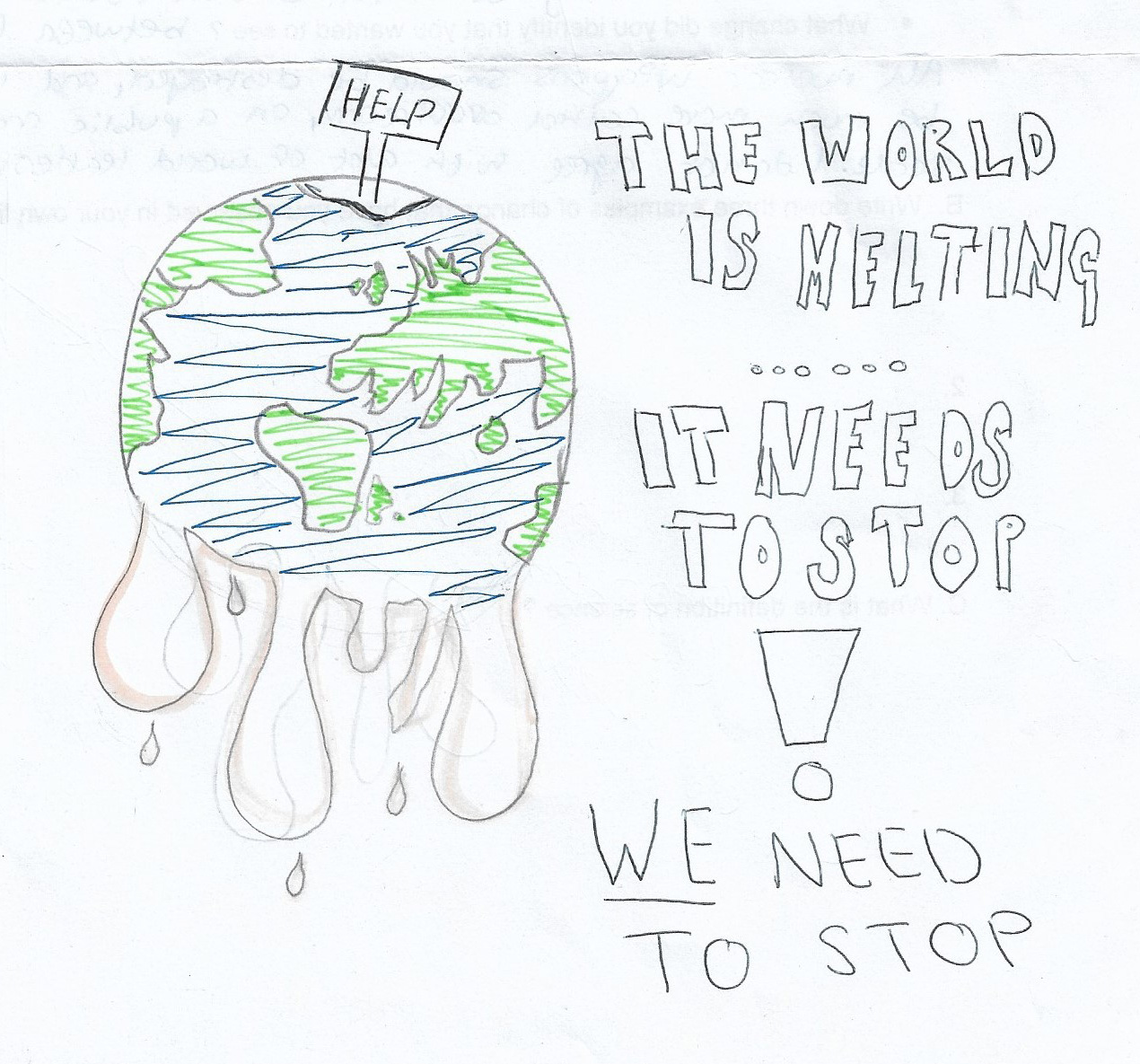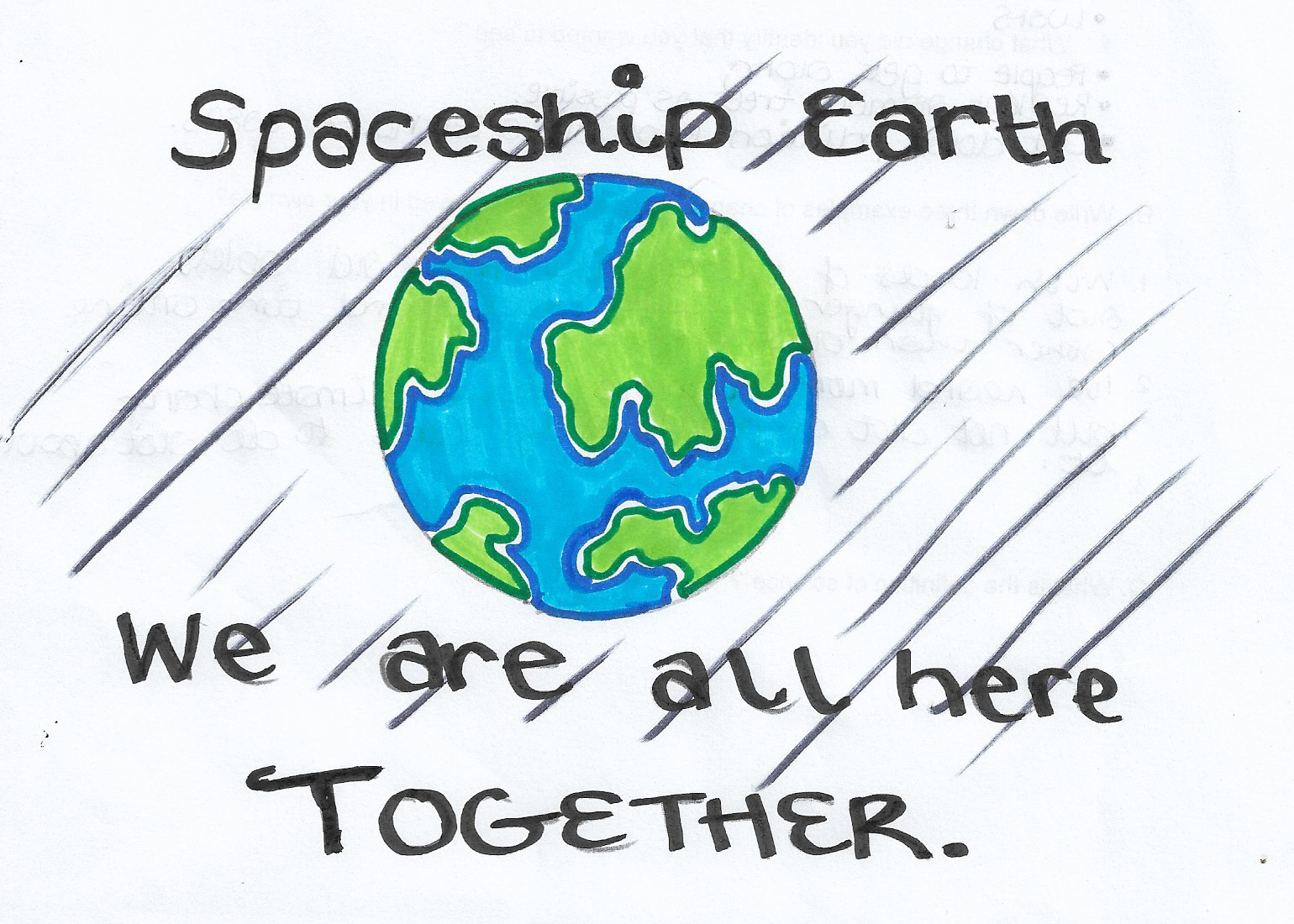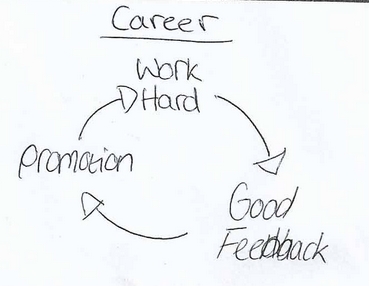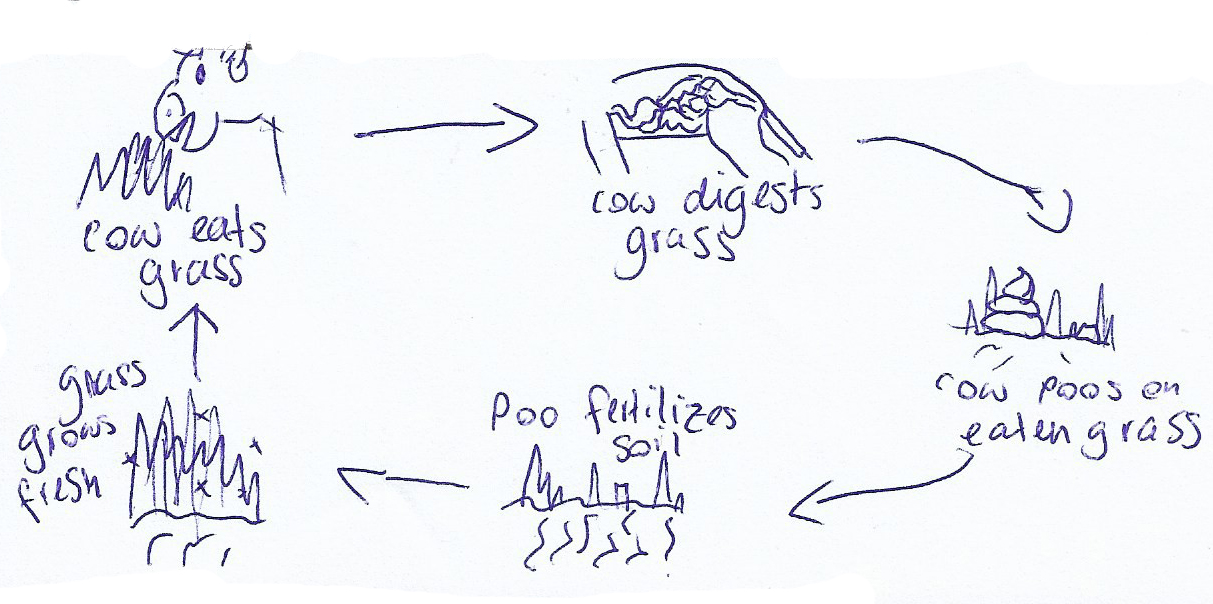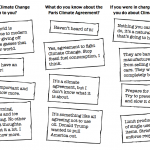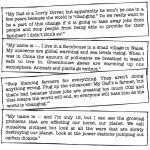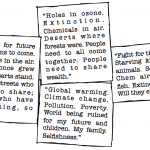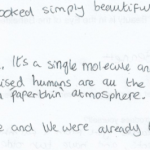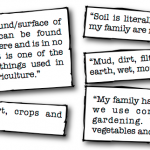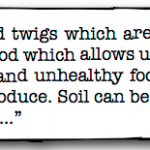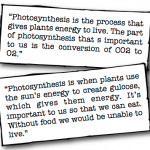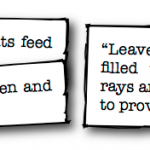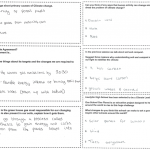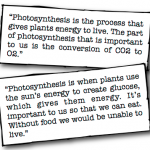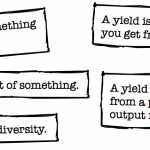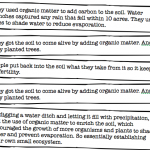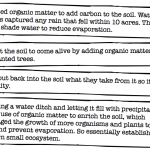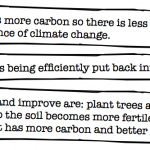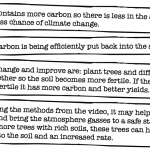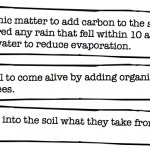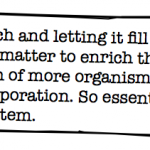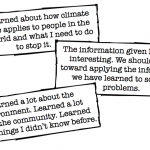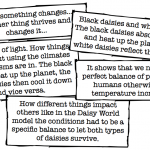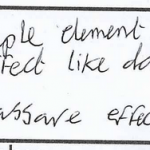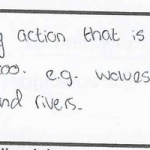Last week saw the end of the first phase of our One School One Planet classroom sessions. Over the last five weeks we have completed five units of our programme with a year 10 Welsh Baccalaureate class (click to be taken to a write-up about the session):
Unit 1: Creatively Use and Respond to Change.
Unit 2: Observation.
Unit 3: Catch and Store Energy.
Unit 4: Yields.
Unit 5: Limits and Feedback.
This was a sensible place to wrap up the first round of classroom sessions, as from Unit 6 onwards the focus increasingly shifts towards practical applications of the ideas we have been discussing so far. The introduction of Systems Thinking in Unit 5 also demonstrates how the perhaps seemingly unrelated themes of the the past few weeks are in fact intimately connected. We are now in the process of starting to think about the best way to go about moving forward to integrate theory and practice, and will keep you posted as we develop our ideas.
At this juncture, therefore, it would seem sensible to reflect back on the teaching sessions so far.
The first official classroom sessions for the One School One Planet project were back in March 2017 when Jack went into some Year 10 GCSE Photography lessons to introduce students to a project on . He introduced students to the concept of ‘ecosystems’ and to the main principles and ethics of permaculture. Jack was joined by a past student from the school, who talked with the class about developing design ideas from natural patterns.
Students were then tasked to produce memes incorporating their own photographs and text. Students developed their ideas in class, and then a couple of weeks later Jack and Steve returned to the school to take the class down to the wetlands and Cae Bodfach community orchard to take some photographs for their memes.
Here are some of the memes the class came up with, we were quite pleased with the results:
Overall these sessions were good, and we were happy with the outcomes. The sessions were stand-alone sessions and did not directly feed into the work we have been doing with the development of our school programme, but nevertheless the experience was illuminating and showed that we could work with secondary school students on theses issues.
The next round of classroom sessions did not commence until September. In the interval between March and September we had been working on developing our programme and scheme of work, while also talking with senior management and teachers at Llanfyllin High School about how best to go about incorporating them into the school curriculum. The decision was that a top set Year 10 Welsh Baccalaureate group would be the best class to work with.
Sessions with the group were occasionally very challenging in a number of different ways. One key challenge was attempting to overcome the view that environmentalists and climate scientists are blaming farmers for the eco-crisis. Many of the students in the class are from farming families and were understandably defensive about their livelihood. We worked with the students over five weeks to overcome this idea, and actually to press the point that agriculture is vital for the future, and that farmers are in a unique position to be leaders in climate change mitigation. I think we were successful to a certain extent in addressing some of these issues, but there is still a lot of work to be done in encouraging a different way of thinking.
In spite of a few challenges and set-backs, we were overall very impressed by the level of intellectual engagement with the materials were presented, and have been very happy with the quality of some of the work we have received over the last few weeks:
The quality of written responses has also been of a very good, and very thoughtful standard:
We have learnt a lot over the last five weeks in the classroom. We have had to adapt our approach considerably from what we had initially expected. I think that originally we wanted to bring something of the more open-ended discursive approach of the Permaculture Design Course to the classroom, but in the end found that it didn’t quite work. That is not to say that it couldn’t, just that we perhaps didn’t quite pull it off. What we found was that the students in the class we were working with required a fairly rigid structure to their lessons, and plenty of activities, in order to keep them engaged and on task. This resulted in a great deal of planning for each taught session, and a proliferation of different worksheets to scaffold our sessions.
Now that this initial groundwork has been done we look forward to moving on to the more practical elements of the course in the New Year. The second aspect of Permaculture is about the implementation of ideas from systems thinking and observation of the natural world for practical purposes. We are currently thinking of different ways of allowing students at Llanfyllin to begin to implement these ideas. One possibility is to engage students in a project at Cae Bodfach community orchard that has recevied funding to plant a medicinal herb garden, another possibility is to carry out a survey on Llanfyllin High School itself to identify areas of the campus that could be put to ecological use. We are still consulting with staff, students and the wider community on how best to move forward, and would welcome any input from parties interested in collaboration….

